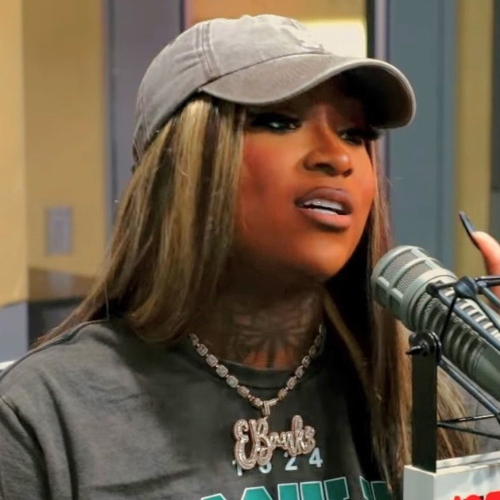The day Teena Marie passed back in December 2010, R&B didn’t just lose a voice—it lost a lightning bolt. Even now, it’s hard to turn on a playlist without stumbling over something she’s influenced. Born Mary Christine Brockert (not that many fans called her that), Teena was never just another belter with a big range. She broke through as “Lady T”—the white dynamo who bulldozed through color lines and laughed at the usual music-industry playbook. Her career, stretching out over three wild decades and a pile of hits, pretty much argued once and for all that real soul can’t be boxed in by skin tone or corporate boundaries.
Of course, people remember chart-burners like “Lovergirl” and “Square Biz.” But get this—Teena wasn’t just stacking up hits for herself. She was the rare artist who shoved open the doors for others, insisting on some actual independence while most singers were still at the mercy of cigar-chomping A&R guys. And her legal spat with Motown? Still echoes through music contracts today, which is wild when you think about it.
Back in the late ’70s and all through the ’80s, the music industry was a different animal. Today’s algorithms and relentless streaming numbers hadn’t grabbed the wheel yet—radio play and record sales still called the shots. Teena’s knack for connecting with Black audiences, white audiences, pretty much everybody—well, that didn’t just make her a crossover; it helped cement what R&B and pop mean now.
Teena Marie’s Musical Jolt
So, picture this: it’s 1979, Motown is hunting for something—anything—to keep its crown, and in walks Teena Marie with that volcanic voice. Her debut, “Wild and Peaceful,” drops and suddenly critics are fumbling for adjectives that fit (none really do).
Then out of nowhere, she teams up with Rick James on “I’m a Sucker for Your Love.” It’s not just a duet; more like a statement. Lines got erased overnight. Suddenly, talent—not image—became the password into R&B’s inner circle, and Lady T was in.
The real kicker? Her range. Teena could leap all over four octaves, tossing out runs with a kind of reckless energy. Rumor has it, studio engineers would just shake their heads, mutter something about “raw power,” and then hit record. Add in the fact she played a handful of instruments herself—studio musicians knew not to underestimate her, period.
| Album | Release Year | Chart Performance | Notable Tracks |
|---|---|---|---|
| Wild and Peaceful | 1979 | R&B #18 | I’m a Sucker for Your Love |
| Irons in the Fire | 1980 | R&B #23 | I Need Your Lovin’ |
| It Must Be Magic | 1981 | R&B #23 | Square Biz |
| Starchild | 1984 | R&B #9, Pop #31 | Lovergirl |
| Congo Square | 2009 | R&B #14 | Can’t Last a Day |
Taking the Wheel: Real Artistic Control
Here’s where things get especially interesting—by her third album, “Irons in the Fire,” Teena chucked the industry script and took the reins herself. Start to finish, she wrote, arranged, and produced those songs (not exactly the norm for most female acts—or really any act—at the time). Word spread quick: Lady T didn’t just sing, she ran the show.
She played more than just her own vocals, too. Give her a guitar, keyboard, even a set of congas, and she’d pull it into her layered sound. Fans ate it up, and you could spot her fingerprints all over every record. Collaborators, both big names and unknowns, lined up out of respect—she’d already become the kind of musician who made other musicians step up their game.
“Authenticity” doesn’t even begin to cover it. People in the know called her “the musician’s musician,” and for good reason.
The Brockert Initiative: Teena Changes the Rules
Now, about that legendary battle with Motown. This wasn’t backstage drama—it was a legal earthquake. The “Brockert Initiative,” named after her family, basically made it illegal for a label to put an artist on ice: if you’re signed, your music has to be released, or you’re free. Simple, but nobody had pulled it off before.
Motown tried to keep her locked down, wouldn’t release her records…and Teena said nope. After a nasty legal fight, she came out on top. Even now, rookie musicians and superstars alike have her to thank for contracts that don’t leave them stranded in career limbo.
Weird thing—law students still study that case today. She ended up paving a path for artists to actually call some shots, long before streaming made “independent” a cool word.
Teena’s Real Impact: More Than Just the Songs
If you ask around, Teena’s biggest impact wasn’t even the music (although, let’s be real, the music slaps). She smashed old assumptions about who could belong in what genre, clearing a path for anyone bold enough to cut their own lane. R&B wasn’t supposed to cross racial lines so easily, but she made it look effortless. That changed things. You see more collaborations between artists from different backgrounds these days, and it’s not a stretch to trace that back to Lady T.
And fashion? Oh, she made just as much noise there: wild hair, wild makeup, unapologetic everything. Those stage outfits still get brought up in conversations about ’80s pop culture, and stylists now will point to her as a trailblazer.
No TikTok, no Insta—yet her fan base was rabid. Vintage fan clubs, deep-cut appreciation, people camping out for tickets. There’s a school of thought that says she invented a kind of pre-social-media artist-fandom that newer stars now try to duplicate online.
Lady T in Today’s Spotlight
Even now, with Teena gone, her records keep surfacing on streaming charts and anniversary editions get snapped up by new fans every year. “Congo Square,” her last album, picks up listeners who weren’t even born when she was tearing up radio. And if you think musicians nowadays aren’t aware of her? Scroll enough social feeds and her name keeps popping up in those “influences” lists—especially on the R&B and neo-soul side.
The folks running her estate are careful, probably rightfully so, with what gets released and how her story is handled. Rumors swirl about documentaries or even a biopic (makes sense, frankly—her life is pure movie material). Either way, her mark shows up not only all over modern R&B, but all through music law. Anytime artist rights or fair contracts come up, someone’s bound to say, “Look, Teena Marie set that bar ages ago.”
Closing Thoughts
Teena Marie didn’t just stand behind a mic and belt her heart out—she took on the toughest parts of the industry, and won. She changed what being an artist meant, period. Every time a modern musician fights for writing credits or a seat at the control boards, they’re echoing the moves Teena made in heels and leather jackets.
Her influence is stitched into everything about the way today’s artists aim for freedom and ownership. Doesn’t matter if you’re a rock singer, a rapper, a bedroom producer putting out mixtapes—a bit of what she started runs through what you’re doing.
Thanks to the wonders of streaming, new waves of fans keep meeting Lady T for the first time, and her music isn’t slipping into nostalgia. It’s stubborn, persistent, maybe even more relevant as the conversations about artist control keep heating up. Teena Marie didn’t just leave a legacy—she left a challenge: be yourself, and don’t let anyone else write your story for you. And in R&B, that’s about as timeless as it gets.











